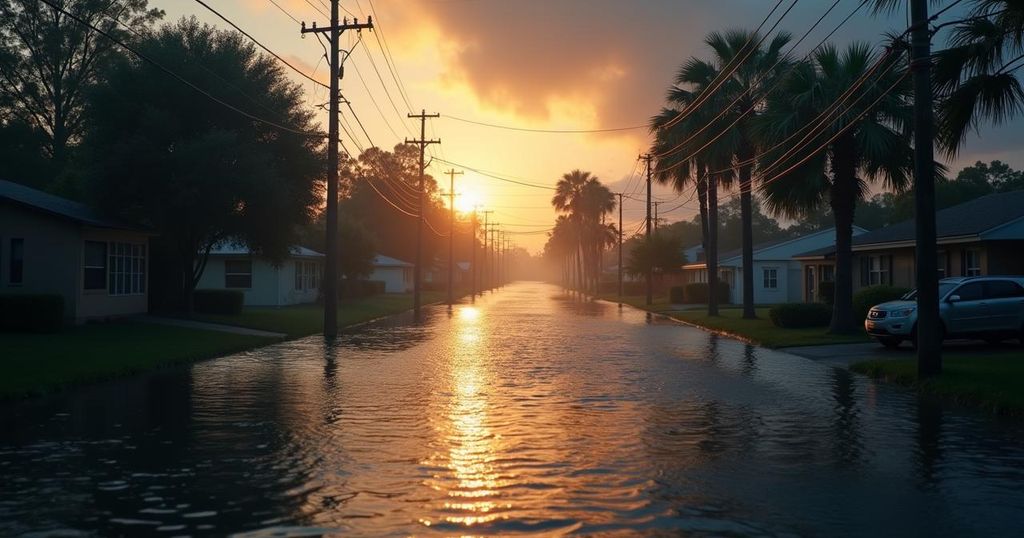FEMA Administrator Links Hurricane Helene’s Devastation to Climate Change

FEMA Administrator Deanne Criswell has linked the severe flooding and death toll caused by Hurricane Helene to climate change, citing warmer Gulf waters as a significant factor in the storm’s rapid intensification. The disaster has affected multiple states, emphasizing the shift from primarily wind-related damage to water-related destruction. The total fatalities from the storm have reached at least 88, with ongoing search and rescue operations in the heavily impacted regions.
On a recent episode of CBS’s “Face the Nation,” the head of the Federal Emergency Management Agency (FEMA), Administrator Deanne Criswell, attributed the significant devastation caused by Hurricane Helene to climate change. The storm has led to historic flooding from the Florida coast to the Appalachian region, resulting in at least 88 fatalities. Administrator Criswell emphasized that the hurricane’s rapid intensification was influenced by elevated water temperatures in the Gulf of Mexico. She stated, “this storm took a while to develop, but once it did, it developed and intensified very rapidly.” This phenomenon, she noted, leads to a higher frequency of storms reaching major hurricane categories than previously observed. She further explained that the warmer waters contribute to increased storm surges and rainfall as hurricanes track northward. Historically, hurricane damage was predominantly associated with wind; however, Criswell indicated that, due to climate change, there is now a shift towards predominantly water-related damage. “In the past, when we would look at damage from hurricanes, it was primarily wind damage, with some water damage. But now we’re seeing so much more water damage,” she said. FEMA has noted severe impacts in several states, including Florida, Georgia, South Carolina, North Carolina, and Tennessee. The damage encompasses critical systems such as water, communications, transportation routes, and numerous destroyed residences. Particularly in North Carolina, historic flooding has been reported, with Buncombe County Sheriff Quentin Miller confirming that 30 individuals lost their lives due to the storm. Governor Roy Cooper of North Carolina warned that the death toll could rise as emergency services reach previously inaccessible areas due to destroyed infrastructure. Governor Cooper also urged citizens to avoid traveling in the western regions of the state to ensure their safety and facilitate emergency responses. The total death toll across multiple states, including South Carolina, Georgia, Florida, and Virginia, now stands at a minimum of 88 as search efforts continue.
The catastrophic effects of Hurricane Helene, which resulted in significant loss of life and widespread flooding, illustrate the growing concern about the impact of climate change on hurricane behavior and characteristics. The phenomenon of warmer ocean temperatures is understood to correlate with increased hurricane intensity, leading to greater precipitation and storm surges, which exacerbate flooding and damage to infrastructure. The responses from FEMA officials reflect a larger narrative about the challenges presented by climate change in disaster management and response strategies. Regional authorities are now tasked with navigating the immediate needs of disaster response alongside longer-term considerations about climate resilience and infrastructure durability.
The statements of FEMA Administrator Deanne Criswell underscore a critical connection between the escalating severity of hurricanes and climate change. As Hurricane Helene has shown, communities across several states are now grappling with the aftermath of unprecedented flooding and damage. The recognition that warmer ocean temperatures contribute to these disasters highlights the urgent need for proactive measures to mitigate climate impacts and enhance preparedness against future storms.
Original Source: www.ibtimes.com







